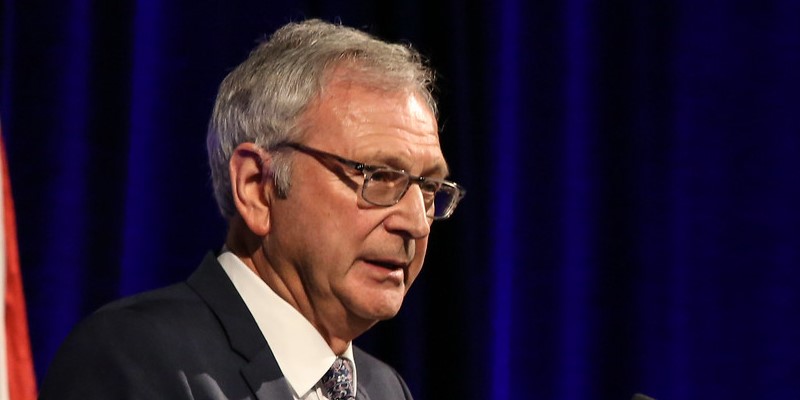New Brunswick stays the course with surplus and tax reductions

The Higgs government tabled its 2023 budget on Tuesday, delivering largely what was expected including a balanced budget, tax reductions and a decline in debt as a share of the economy.
New Brunswick is expected to record a $40 million surplus this year, which will be the sixth consecutive budget surplus that Higgs has run since being elected as premier. The government further projects small surpluses of $27 million and $39 million in the next two years.
The budget continues a pattern of cautious estimates. For example, it projects provincial revenue to decline by 1.8 per cent this year, despite projecting economic growth (inflation-adjusted) of 0.8 per cent. This means the true surplus will likely exceed the projection of $40 million, as it has over the past several years. Regardless, this recent stretch of being disciplined in managing public finances is critically important for two reasons.
First, New Brunswick was the only province in Canada to reject the temptation to borrow money and plunge deeper into debt during COVID. Every other province ran a deficit in at least one of the 2020 or 2021 fiscal years. Second, the government in Fredericton is one of only two provincial governments in Canada (the other being Alberta) to currently have a projected budgetary surplus for 2023. Other provinces that have tabled their budgets so far, including British Columbia and Manitoba, have all chose to increase spending and incur deficits this year. This budget continues New Brunswick’s strong track record of fiscal stewardship.
Why has New Brunswick been so successful in swapping red ink for black?
The province continues to stand out from the pack by keeping spending roughly in line with government revenues. Rather than letting program expenses (total spending minus interest costs) explode like most other provinces, New Brunswick has been restrained with the money it spends. According to government documents, between 2017/18 and 2023/24, the province’s spending (adjusted for inflation) has only grown by $447 per person, from $13,495 to $13,942. In contrast, B.C. has increased its per-person spending by more than five times as much ($2,272) over the same timeframe.
Spending restraint has been an incredibly successful approach for New Brunswick. The budget shows that provincial debt (total liabilities minus financial assets) has dropped by $2.1 billion since 2017/18 and the province’s debt position should remain relatively flat in future years. Debt as a share of the economy is forecasted to decrease from 25.1 per cent in 2022 to 23.4 per cent by 2025, another area where New Brunswick outperforms its provincial peers.
With that said, provincial net debt is expected to rise slightly, from $11.6 billion last year to $11.8 billion this year. Should history repeat itself with a larger-than-expected surplus, the government should return to its previous track record of reducing this number year over year and continue to save on debt servicing costs. In any event, the government has out itself in much better financial shape than most other provinces in both the short and long term.
Prudent financial management has also made it possible for the province to provide tax relief for the third year in a row. The budget includes a reduction in personal income taxes across almost all income levels with reductions ranging from 0.52 to 1.84 percentage points. These tax changes represent a step in the right direction, as New Brunswick’s personal income tax rates have been among the highest in North America.
However, the province still must address its high tax situation. Even with the personal income tax reductions this year, tax rates on personal income remain high compared to other provinces and states. And businesses tax rates (14 per cent) are tied for the third-highest in Canada, a situation unchanged by this year’s budget.
This is why the province must maintain its fiscal approach going forward. Making additional tax reductions on personal incomes and businesses in subsequent years will enable New Brunswick to attract investment, jobs, high-skilled workers and entrepreneurs.
Overall, Budget 2023 ensured New Brunswick stayed the course fiscally, by continuing to run surpluses. It also used the province’s relatively strong position to offer tax relief to individuals in the form of personal income tax reductions. This combination of balanced budgets and tax reductions offers a stark contrast to the approach undertaken by most other provinces.
Authors:
Subscribe to the Fraser Institute
Get the latest news from the Fraser Institute on the latest research studies, news and events.

